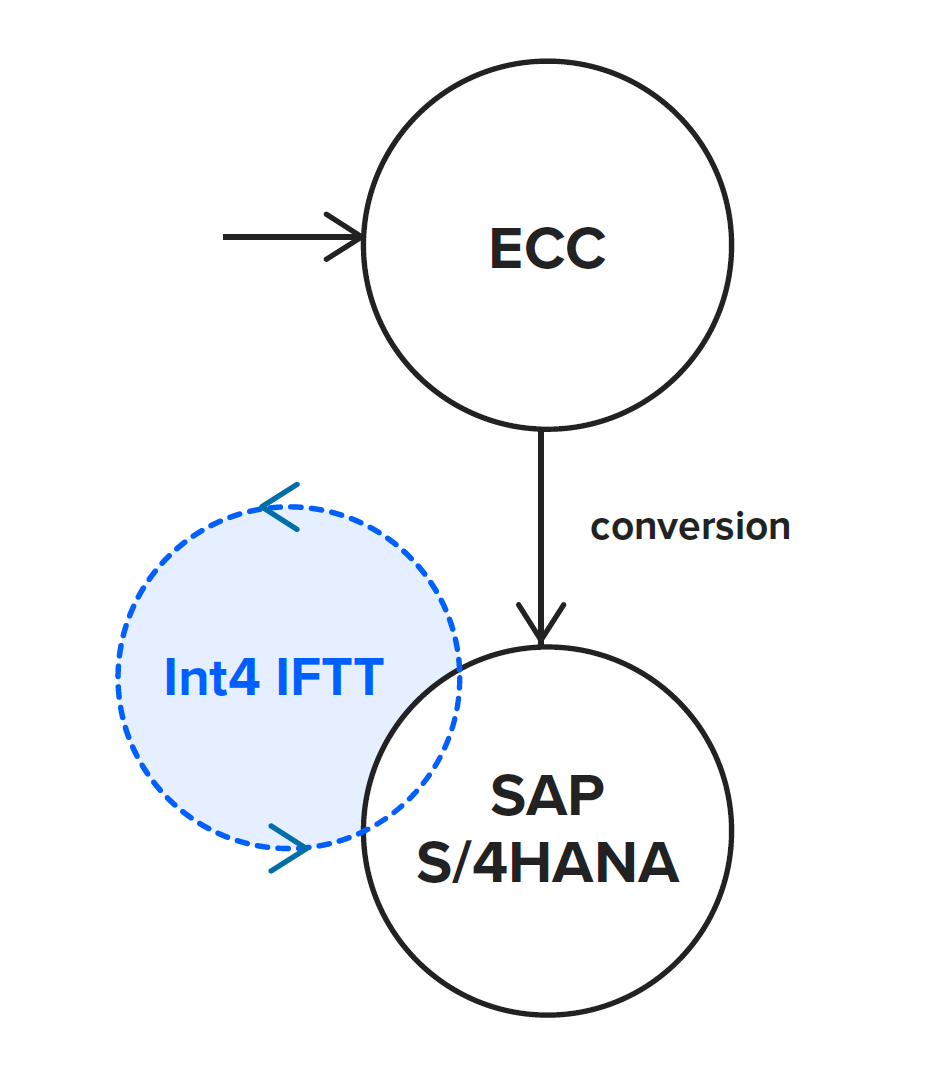Testing of S/4 HANA conversions is a challenge because:
Limited business involvement due to unchanged business requirements (compared to greenfield implementations
Limited access to vendors and customers systems and the manual testing – already live system
Technically driven nature of conversion
In many cases, business processes on SAP ECC are not started in SAP ECC but in the external systems (B2B-EDI, Legacy systems). Those systems communicate with the use of integration technologies (like IDOCs, etc.).
In order to To validate and test the system after conversion to S/4HANA, we need to simulate many external systems (service virtualization).
Int4 IFTT with the use of it’s REPEATER function , using its REPEATER function, can automatically repeat all messages which that existed in the system after the conversion process is finished and compare the business documents created before the S/4HANA conversion with the reference documents created before the S/4HANA conversion. Using this approach can eliminate the need to connect external systems for S/4HANA validation and at the
same test more examples using the existing messages.
Testing process
Below The below description is limited to the API Backend testing. However, but of course it can be extended to the full entire SAP environment together with the integration platform.
Business Value to customer
Presented The presented approach will lead to:
Cost reduction due to low involvement of external partners (customers, vendors) and business resource
Meeting all business requirements by automated testing for
thousands of casesImproved efficiency of the migration process thanks to Test Driven Development (TTD) approach
